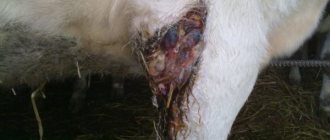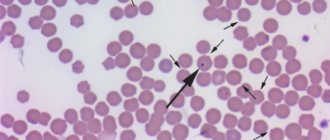Worms in dogs are a widespread disease from which no pet is immune. Helminthiasis is the scientific name for the pathology; it can occur suddenly and not manifest itself for years. All this time, irreparable harm is caused to the animal’s body, and the dog is a source of danger both for other pets and for people. In our article we will look in detail at what worms there are, possible methods of infection, how to find out if your pet is infected, how to remove parasites and how to protect yourself and your children from infection.
Dewormer for dogs
Deworming is one of the basic, regular procedures that all dog owners should remember. With its help, internal parasites are removed from your pet, which are not only dangerous to his health, but can also cause death. There are a lot of anti-worm medications for dogs, but it is not advisable for the owner to choose them independently. Each product has a number of specific characteristics and requires careful dosage, so they should be prescribed by a veterinarian after examining the pet.
Vomiting, bloody diarrhea, or smells rotten
If similar symptoms appear during deworming, this is a sign of severe intoxication of the body. It is caused by the massive death of parasites in the body: dead worms release toxins that are absorbed into the blood.
Exceeding the permissible dosage of the drug can also provoke such a reaction. The dog requires immediate veterinary attention, hospital treatment, and intravenous medication. Delay and self-medication for such symptoms threatens the death of the animal.
Is this normal?
A normal reaction after deworming is a slight discomfort in the pet, which goes away on its own within 12-24 hours. If the symptoms after taking an anthelmintic drug are bright and pronounced (profuse vomiting, convulsions, etc.) – the situation is not normal and requires veterinary control.
A short tour of dog parasites
Helminths (worms) are forms of parasitic worms that choose dogs as their primary host, develop and multiply in their bodies. They can be dangerous not only for the dogs, but also for the owner himself. That is why it is necessary to carry out quarterly prevention against worms using specific anthelmintics for dogs.
It is impossible to completely exclude infection; infection with internal parasites can occur through consumption of food and water, especially under unsanitary conditions for keeping dogs. In almost 100% of cases, if a pet had fleas, worms are later discovered. Infection can also occur through insect bites (dirofilariasis), mosquitoes, and ticks.
Important! There is also a danger for a domestic dog that has never gone outside or walks in a closed area on the territory of a private house. The owner can bring worm eggs on shoes.
How to tell if your dog has worms
With helminthic infestation, intoxication develops, the integrity of the mucous membranes is impaired, and there is a lack of vitamins. Depending on the location, symptoms may appear:
- Sneezing, coughing, respiratory problems.
- Itching, nodular rash, lumps on the skin.
- Internal bleeding.
- Changes in the functioning of the cardiovascular system, gastrointestinal tract, etc.
Subjective reasons include hiccups, rumbling in the stomach, stunted growth, and itching in the anus. Worms can be visually detected in vomit and feces.
What to give your dog for worms: general recommendations
The owner’s wrong approach is to independently choose anthelmintics, especially on the recommendations of friends. Only a specialist, after a series of studies, can make a diagnosis and accurately determine the type of helminth and then prescribe a drug that is effective in combating it.
What to consider when choosing a deworming product for dogs:
- Age of the dog.
- Size and weight.
- Possible allergic reaction.
- Date of production, integrity of packaging.
- Storage conditions of the drug and place of sale.
More often, broad-spectrum drugs are prescribed, which can simultaneously affect different types of internal parasites.
The main mistakes of the owner
When purchasing deworming medication for dogs, many owners follow the advice of friends who have given the drug to their animal or have heard stories about it. The use of anthelmintics is prohibited without taking into account the specific characteristics of pets, physical condition, weight, level of infection, etc. The same drug can have different effects on a puppy and an adult, and an overdose negatively affects all organs and systems. You may not only fail to rid your dog of worms, but also provoke severe intoxication/poisoning.
The best deworming remedy for dogs in tablets
One of the most common forms of anthelmintic drugs. They are coated, dissolve in a certain part of the intestine, acting on helminths, and not on the dog’s body as a whole.
- Drontal Plus (Germany)
Designed to destroy tapeworms (giardia, nematodes, cestodes), tablets with the taste of meat, so they are easily eaten. Suitable for dogs of any age; no side effects have been identified in case of overdose. Do not give to pregnant bitches, puppies under 2 weeks of age and weighing less than 2 kg.
- Kanikquantel Plus (Germany)
One tablet is designed for 2 kg of animal weight, has an unpleasant taste, so it is mixed with minced meat, etc. Do not use for pregnant women or puppies under 3 weeks. The tablet takes a long time to dissolve and be absorbed.
- Milbemax (France)
It is effective against cestodes, nematodes, and trematodes, but has an unpleasant taste, so animals are reluctant to eat it. Do not give to pregnant females and puppies up to 3 weeks. There is no need to take it again; the effect begins after a few hours.
- Pratel (Slovenia)
Treat budgetary funds with caution and only after consulting a veterinarian is it allowed to give in the later stages of pregnancy. Do not give to dogs with liver and kidney pathologies and individuals under 1.5 months. Individual intolerance to individual components of the composition cannot be ruled out.
Indications and contraindications
Most products are safe for dogs. They are prescribed to puppies from the age of one month (for younger animals, special preparations in the form of a suspension or paste are required). It is possible to treat pets with chronic diseases, the elderly, and the weakened. For preventive purposes, tablets are given every 3 months; if helminths are detected, unscheduled treatment is recommended. It is better to use another remedy for her. It is possible that the medicine chosen for the initial dose was not able to destroy a particular type of round or flatworm.
Mandatory treatment is carried out before operations, including castration and sterilization. Tablets are given a week before scheduled vaccination, before exhibitions or trips to other regions. After each session, a mark is placed in the pet’s veterinary passport indicating the date and the drug used.
Healthy animals tolerate anthelmintic treatment well. If the recommended dose is exceeded, nausea, apathy, refusal to eat, convulsions and other unpleasant symptoms are possible. The tablets also have contraindications. They are not recommended for use when:
- infectious diseases;
- diagnosed cancer tumors;
- renal and liver failure;
- severe weight deficiency;
- individual allergic reaction to the components of the drug.
Treatment of pregnant and lactating females should be under the supervision of a physician. It is better to carry out deworming before mating; this will preserve the health of the bitch and prevent infection of the puppies.
Unusual parasite remedies for dogs
The suspension is a thick fraction that is more convenient to apply and dose, especially for small breeds of dogs and puppies. It acts faster and more extensively, covers a larger area in the gastrointestinal tract and acts faster on helminths.
Important! Before use, shake the bottle vigorously so that the suspension becomes homogeneous.
- Prokoks (Bayer)
20 ml bottle, used for preventive deworming and treatment against coccidiosis and nematodes. With caution and only after the approval of a veterinarian for collies, shelties, and bobtails. Do not use for pathologies of the liver and kidneys. Allowed for puppies from 2-3 weeks of age.
- Kaniverm (Bioveta sro)
The release form is a paste, used against round and tapeworms in dogs. Low toxicity, so it is acceptable to use by pregnant females and puppies. It cannot be combined with other anthelmintics, used for sick and weakened animals, and when used, do not mix with dairy products. The drug paralyzes helminths in the intestines and removes them out.
- Poliverkan (France)
Available in the form of pressed sugar cubes, it is effective against roundworms and tapeworms. It has a pleasant taste, so it is readily eaten by dogs. Do not use for pregnant women and children, do not combine with other drugs.
How long do they leave after?
Helminths can exit in 2 main ways: through the mouth with vomiting (typical of lungworms) and through the anus with feces. Dead worms come out whole or in fragments. Also, helminths can be alive, but completely paralyzed.
For dogs, the medical withdrawal interval is 6-24 hours. The final time is determined by a complex of factors:
- sensitivity of the parasite to the drug;
- the number of helminths in the body;
- stage of helminthic infestation;
- the presence of concomitant diseases in the dog.
Antiparasitic drops on the withers
Giving tablets or suspension is not always feasible for the dog owner. In this case, the manufacturers of veterinary preparations took care of this and released a line of drops that are used externally, on the withers. As a rule, these are complex preparations that destroy external (fleas) and internal parasites.
- Lawyer (Bayer)
Moderately long-acting drug (fleas, nematodes, scabies mites), protection is designed for 28 days. They are used only as a prophylactic agent; due to the low concentration of the active substance, it is impossible to destroy existing helminths. The drug is contraindicated in puppies under 6-8 weeks of age. and exhausted, sick animals.
- Inspector Total S (Germany)
Suitable for prevention against nematodes, scabies, ear mites. Do not use for dogs with already diagnosed helminthiasis; there will be no effective treatment due to the low concentration of the substance. The drug is not given to puppies up to 1.5 months. and weakened, emaciated animals.
- Stronghold (Pfizer)
The product is used against nematodes and scabies mites. The validity period of one treatment is up to a month, but the drug is more suitable for prevention. Do not use for puppies under 1.5 months. and after treatment, the puppy is not touched for 2 hours, is not allowed to lick and is not allowed near other animals and children.
One of the most recognizable drugs in worming injections for dogs is Ivermec. Can be used for the prevention and treatment of skin parasites and nematodes. The injectable drug is available in the form of a 1% solution in vials; it is used with caution in dogs; it is very toxic and its dose is calculated based on 0.1 ml per 5 kg. (not recommended for collies, bobtails, shelties; dangerous dose is 100-500 mg/kg). Therefore, Ivermek is recommended to be used only for large animals.
Many dog owners often encounter such an unpleasant disease in their pets as helminthiasis. Whether we reassure you or not, almost every person who has a dog in the house has faced this problem, and almost no one has been able to avoid infecting their pet with worms. Worms in animals are not uncommon. Therefore, every owner needs to be prepared for this - carry out preventive measures and carefully monitor the health of their pet.
In this article we will look at:
- Causes of helminthiasis;
- Symptoms and signs of worms in dogs ;
- What types of helminths are there;
- How to treat a dog if it has worms ?;
- Prevention of helminthiasis.
Causes of helminthiasis.
Even the most well-groomed dog can be susceptible to the destructive effects of worms or helminths. Helminthiasis is an extremely insidious disease that lies in wait for your pet literally everywhere. Once in a comfortable habitat, the parasites begin to suck out the nutrients entering the dog’s body, and in return release toxins.
Where can worms come from in a dog that lives at home, is in good conditions and eats properly? No matter how scary it may sound, an animal can “pick up” helminths absolutely everywhere. There are two main routes of infection with helminthiasis.
The first and most common is through external sources containing helminth eggs: in grass, dirty vegetables and fruits, in raw meat and fish, in feces, various objects, in puddles and reservoirs, helminth eggs can be brought into the house by the person himself on his shoes. Most often, infection occurs during the traditional daily walk of the dog. If you don’t supervise your dog while walking, it may drink water from a puddle or some dirty, but, in its opinion, edible find. Therefore, it is very important at such moments to try to limit her contact with potentially dangerous things as much as possible.
The second method of infection is direct contact between a dog and a sick animal or through intermediate hosts - fleas, ticks, cockroaches.
Both adults and small puppies are susceptible to infection with worms. Many people are sincerely surprised to discover worms in puppies. Here you need to understand that they can become infected from the mother, in utero, through the placenta. If this does not happen, it is possible that the parasite eggs will enter the puppy’s body after birth, through milk. And if, for a mature dog, as a rule, everything is limited to deworming, then for a puppy the consequences of the disease can be truly tragic. That is why it is very important to detect helminths in time and carry out their destruction.
Are worms transmitted from dogs to humans? Some types of worms can indeed be transmitted from a sick animal to humans, especially children. Therefore, after each interaction with your pet, you should take hygienic measures. And the pet itself must be dewormed at least twice a year.
Symptoms and signs of worms in dogs. How can you tell if your dog has worms ?
Unfortunately, often helminths may not manifest themselves in any way for a long period or, on the contrary, masquerade as some diseases that have similar manifestations to helminthiasis. All this greatly aggravates the situation with the identification and treatment of the disease. In this regard, you should periodically consult and examine your pet with a veterinarian. To determine the presence of worms in a dog , you need to pay special attention to the most common symptoms :
- Changes in the dog's appearance and habitual behavior. The animal becomes lethargic and inactive. The mucous membranes turn pale, activity decreases noticeably - symptoms of anemia.
- Dull, harsh and tousled coat. The coat loses its former shine and looks disheveled for no particular reason.
- Frequent occurrence of skin diseases. There is a tendency to various kinds of dermatoses, eczema, dandruff, etc.
- Deviation in the functioning of the gastrointestinal tract: instability of appetite - its absence or increase. For example, the dog begins to eat more than usual, but at the same time noticeably loses weight or does not gain it at all.
- The animal develops unnatural taste preferences in food; the animal periodically swallows inedible objects.
- Mucus, blood, and parasites are found in feces.
- Digestion and intestinal motility disorders. The animal begins to experience alternating constipation and diarrhea. Frequent spasms and vomiting in dogs - this is especially common in puppies with worms
- A bloated abdomen is common in sick puppies. The occurrence of hiccups after eating and difficulty swallowing.
- The dog is rolling on the floor, severe itching of the anus. This is manifested by the characteristic movements of the animal in an effort to get rid of it; the dog seems to “ride” on the back of its body.
- Rickets, as well as retardation in general development and growth.
If you detect at least one of these signs in your pet, you should immediately visit a doctor! After all, the lack of proper treatment for helminthiasis in an animal can be fatal. Parasites, while in the “host’s” body, release poisonous toxins and eat nutrients that are not intended for them at all. If the disease is neglected and the worms multiply unhindered, the intestines may become clogged, which can lead to intoxication. Please note that the signs of worms in medium breed dogs are the same as in any other breed. But the age of the dog really matters. Worms are especially dangerous for puppies: their poisoning occurs much faster, and infection can cause developmental delays. Dead parasites also cause great harm - after death they straighten, harden and damage the walls of the organs in which they are located.
Signs of distemper in dogs, the symptoms of the disease are very similar to the signs of worms in an animal. For example: lethargy, easy fatigue, tousled hair, decreased appetite, sometimes vomiting, the appearance of slight diarrhea - these are all also signs of distemper in dogs . Only a specialist can make a correct diagnosis. And you definitely don’t need to treat the animal yourself. For example, treating distemper with vodka in dogs can only help at a very early stage. Otherwise, it can even provoke the death of the animal.
What types of helminths are there?
In this block we will answer questions such as, what worms do dogs have and what worms are transmitted from dogs to humans?
There are about 80 types of worms in dogs , and they thrive in the tissues of the animal’s lungs, heart, liver, eyes , and even the brain. Basically they are divided into three basic groups:
- flat tapeworms in dogs or cestodes,
- roundworms or nematodes,
- flukes or trematodes.
Each of these types of helminths causes a certain type of disease that can become chronic, completely depleting the body. In addition, some of them, as mentioned earlier, are easily transmitted to humans. Most often they affect the subcutaneous area, digestive tract, kidneys and heart of the animal. Therefore, the fight against helminths is urgent!
Intestinal worms are the most common. As a rule, they are represented by tape-shaped, round, whip-shaped helminths, which enter the dog’s body through external sources. They are also characterized by general symptoms: vomiting, weight loss, bowel dysfunction, lethargy and digestive disorders. It is intestinal parasites that have a dangerous tendency to bunch up in one lump in the area of the small intestine, thereby forming a blockage and obstruction, which can lead to the death of the dog. It’s hard to even imagine the insidiousness of helminths. For example, there are types of worms that are capable of calmly migrating throughout the host’s body and settling in the most favorable places for their “reign.” Prominent representatives of this type of helminths are roundworms and esophageal worms. They are the ones who most readily settle in the dog’s food system and lungs. In this case, the animal suddenly begins to lose weight, develops a cough, difficulty breathing and develops pneumonia, causing internal bleeding. Unfortunately, without laboratory tests and the help of a veterinarian, it is impossible to detect lungworms in dogs .
No less dangerous are heartworms, which settle in the arteries, atrium, right ventricle of the heart and heart vessels of the animal. The main carriers of heartworm larvae are mosquitoes, fleas and other types of blood-sucking insects. The incubation period of the disease can last up to six months after the bite. The main clinical signs are shortness of breath, difficulty breathing, pulmonary wheezing and noise, general exhaustion and apathy, nervous system disorders, drowsiness and fatigue. Treatment should be carried out in a timely manner, taking into account the individual clinical condition of the dog, since these worms often lead to the sudden death of the animal due to heart rupture.
What to do if your dog has worms? Treatment of worms in dogs. Anti-worm medications for dogs.
The most important thing we want to draw your attention to is that the animal must be treated with the participation of a veterinarian! Only he will be able to prescribe the necessary medications to treat worms in a dog , and take action if the dog develops complications.
If you suspect helminthiasis, you should definitely not self-medicate, since you need to determine the type of parasites and their species, and this can only be done in a laboratory. Therefore, first of all, the dog’s owner should contact a veterinary clinic, where they will need to donate the dog’s blood and feces. Providing only stool is not enough, since we already know that some parasites attack the heart or lungs. And only a blood test can show their presence. You should also know that if there is a risk of parasites in these organs, you will need to do an additional heart ultrasound or x-ray.
Veterinary medications against helminths for dogs.
What tablets are there for worming in dogs ? Is there a universal dewormer for dogs? What should I do if my domestic dog has worms? How to treat worms in a dog at home ? What medications are available to treat worms in dogs ? What folk remedies for worms in dogs really help? What is the best way to treat worms in a dog, what is the price of these drugs ? Almost every dog owner asks himself these and other questions sooner or later.
Let us immediately warn you that the anti-helminth medications for dogs that exist on the market are quite varied. As treatment, drugs are used in the form of tablets against worms for cats and dogs , or a suspension against worms for dogs , or drops on the skin for dogs against worms and ticks . Let's look at the best deworming medications for dogs .
Helminthal is a drug of a new generation of antiparasitic drugs - anthelmintics, created on the basis of a unique combination of active ingredients. Helminthal for dogs is available in different forms:
- helminthal tablets for dogs,
- helminthal syrup for dogs,
- helminthal drops for dogs.
deworming tablets for dogs are intended for oral use. Before giving your pet the drug helminthal for worms , be sure to read the instructions for use . In tablet form, this deworming remedy is used mainly for large dogs. There are simple tips on how to give your dog a deworming tablet :
- gently press on the gap between the teeth so that the dog opens its mouth;
- Quickly and gently place the tablet on the base of your tongue.
- Lift your dog's head up and stroke his throat to trigger the swallowing reflex.
- Be sure to praise your dog when it's over.
Helminthal for puppies and dogs weighing less than 10 kg is produced in the form of a syrup (suspension). Helminthal suspension has a sweetish taste. How to give an anti-worm suspension to a dog? Helminthal syrup is given to animals orally in the morning feeding, with a small amount of food, or injected forcibly into the root of the tongue using a dispenser syringe. According to reviews, Helmintal syrup for dogs has proven itself to be one of the best deworming medications for small breed dogs. An analogue of this drug is a suspension of Prazicide against worms for dogs.
Helminthal drops are an excellent anti-tick and anti-worm drug for dogs. Helminthal drops on the withers for dogs reduce stress in animals during treatment. The price of these deworming drops for dogs is very reasonable and affordable. buy Helmintal drops for the withers at any veterinary pharmacy in your city.
Gelmimax-4 is a drug intended for the treatment of puppies and small breed dogs. Before you start taking the drug Helmimax-4 , be sure to read the instructions , do not build your own course of treatment based on the reviews of other people.
What other deworming tablets can you come across: Milbemax, Dirofen, deworming tablets for cats and dogs Dirofen Plus, chewable tablets for dogs against fleas, ticks and worms .
Before deciding on the choice of anthelmintic drugs, the range of which, as you can see, is simply enormous, you should first consult with a veterinarian and conduct an appropriate examination of the dog to identify them. After all, the choice of means largely depends on the age, physiological characteristics and habitat of the animal.
Prevention of helminthiasis.
It is almost impossible for its owner to protect a dog from worms. But correct, CONSTANT prevention solves many problems. Preventive measures are simply necessary to maintain the dog’s normal health and development. There are preventive measures that need to be taken simultaneously in three areas:
- process food before feeding the animal;
- regularly give your pet antiparasitic medications;
- Once a year, take your dog's feces for analysis.
The optimal interval for preventive deworming of a dog is once every 3 months. However, if your animal never goes outside, does not communicate with other animals and eats exclusively ready-made dog food, then you can worm it once every six months (preferably in spring and autumn). Drug prevention against worms begins early: the medicine should be given to a 3-4 week old puppy.
A doctor at a veterinary clinic will tell you how to properly prepare an animal for antiparasitic prevention, which product to choose and what to pay special attention to. Always remember that you need to pay attention to your dog’s immunity - watch your diet, take vitamin complexes, and contact a veterinary clinic in a timely manner.











